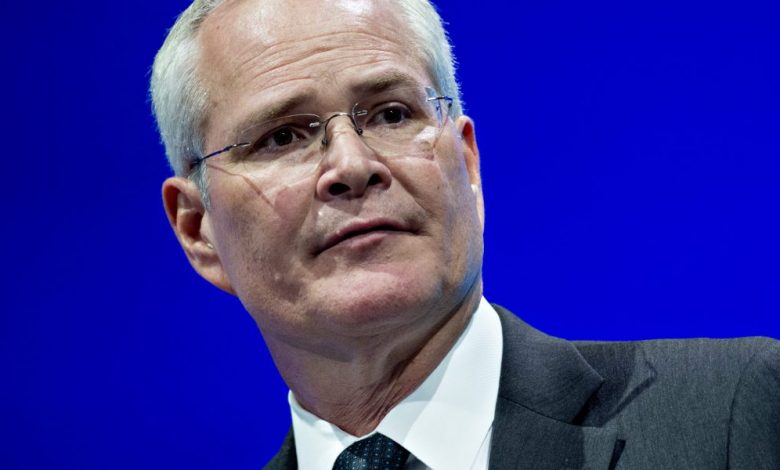Exxon Mobil is getting into energy trading and has everything it takes except the right culture

Exxon Mobil Corp.’s ambitious plan to storm the world of energy trading has drawn skepticism from veteran market observers, who say the oil giant could be a formidable opponent — but only if it takes risks it’s not previously prepared to accept was .
Exxon’s wide range of physical assets and huge balance sheet even give it an advantage over the world’s top trading houses, which have posted record profits since the pandemic. But its plans are all too familiar to traders who’ve seen it bounce in and out of trades over the past five years, according to more than a dozen industry experts.
How much risk Exxon takes, how much loss it tolerates and how much it spends on top talent — considerations rarely associated with the conservative oil giant — will be key to its success, they said.
Exxon has “the potential to be great, but it’s not easy to see that potential,” said Craig Pirrong, a professor of finance at the University of Houston. “It remains to be seen how committed they will be. BP, Shell and Glencore and others have held onto it through ups and downs. Exxon didn’t do that.”
The established trading houses are rarely threatened by upstarts. Glencore Plc, Trafigura Group and Vitol Group, as well as BP Plc and Shell Plc have decades of experience dealing with market volatility and have developed internal systems and analysis that are difficult to replicate. High market volatility and a range of actively traded derivative contracts mean there are plenty of profits available even when newcomers thrive.
But the global reach of Exxon’s operations and access to market intelligence — key for any trader — is unparalleled. Exxon also has ample capital to secure large trading positions after posting a record $59 billion in profit last year.
It’s a “big shift in strategy for Exxon,” said Rebecca Babin, a senior energy trader at CIBC Private Wealth Management. “It should be a very natural extension of their ongoing business, but the competition is tough.”
An Exxon spokeswoman had no comment beyond yesterday’s announcement.
Trading isn’t an entirely new business for Exxon. The company made an initial, limited foray in 2018 when it hired consultants and recruited staff, including some high-profile retailers, from established stores while setting up retail spaces near Houston and in Leatherhead, a commuter town just outside London.
But efforts stalled in the pandemic, as Exxon posted losses while peers posted substantial returns.
Exxon’s latest expansion is picking up speed. The company made a number of external hires in 2023 and had its best-ever trading performance over the past year. Exxon has also tried to centralize dealers in London this year to attract and retain talent.
In an email to employees on Thursday, the company said it was focused on “ultimately delivering industry-leading trading results.” It made no mention of hiring goals, how much capital to deploy, or strategic goals for the company.
Compensation will be key as the market for commodity trading talent is tight and hedge funds in particular are increasing their presence. Traders’ pay is heavily geared toward annual bonuses, often granting them at least 10% of the money they make for their business. Exxon doesn’t pay annual cash bonuses to most of its employees, instead offering high base salaries and a generous pension.
But Chief Executive Officer Darren Woods has shown he is willing to deviate from tradition. Last year, he nearly tripled the number of employees eligible for restricted stock and gave US workers pay increases that beat inflation, in addition to a one-off mid-year raise.
Exxon’s risk approach could be even more crucial. The oil giant is run by engineers who have focused on building or buying the cheapest facilities and running them efficiently, rather than relying on commodity prices. This has created a culture reluctant to take price risks and has a low tolerance for mistakes.
Still, the scale of Exxon’s global operations gives the company unique insight into nearly every corner of the energy market, from pipeline flows in North America to ship movements in the Middle East to refined product demand in Asia.
Instantly understand how prices are affected by changes in physical flows, such as B. a refinery failure, can mean profits in the millions. One trader joked that Exxon’s market intelligence is so extensive that counterparties’ bets would amount to speculation by comparison.
“You can’t beat the market if you don’t have an advantage,” Pirrong said. “Exxon has tremendous potential because of this global footprint. The challenge is to provide traders with this information in a way that allows them to trade profitably.”
–Assisted by Sheela Tobben
Learn how to navigate and build trust in your organization with The Trust Factor, a weekly newsletter exploring what leaders need to succeed. Login here.



